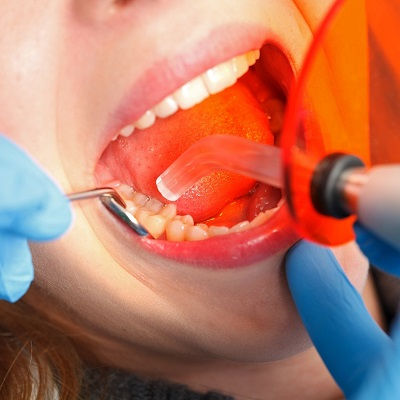Are Dental Tooth Fillings Painful?
- aliza khan
- Aug 15, 2025
- 4 min read
Dental cavities are one of the most common oral health issues, and tooth fillings are the standard treatment for restoring decayed teeth. However, many patients hesitate to seek care due to fear of pain. Understanding the procedure, its effects, and modern pain management options can help individuals make informed decisions. For those considering Dental Tooth Filling in Dubai, knowing what to expect is key to a stress-free experience.
What Is a Dental Tooth Filling?
A dental tooth filling is a restorative procedure used to repair a tooth damaged by decay, cracks, or minor fractures. The process involves removing decayed material and filling the cavity with a durable material such as composite resin, amalgam, or ceramic.
Fillings serve multiple purposes:
Restoring function – Allowing the tooth to chew properly.
Preventing further decay – Sealing off vulnerable areas from bacteria.
Improving appearance – Modern composite fillings match natural tooth color for a seamless look.
In Dubai, clinics offering Dental Tooth Filling in Dubai utilize advanced techniques to make the procedure efficient, safe, and as comfortable as possible.

Are Dental Tooth Fillings Painful?
The perception of pain during dental fillings is a common concern, but advances in dentistry have greatly reduced discomfort. Here’s what patients typically experience:
1. Numbing the Tooth:
Before the procedure, the dentist administers a local anesthetic to numb the area around the tooth. This ensures that patients feel little to no pain during the drilling and filling process.
2. Sensations During the Procedure:
While patients may feel pressure or vibration from the dental tools, actual pain is minimal. Modern equipment, including high-speed drills and laser tools, allows for precise work that minimizes discomfort.
3. Post-Procedure Sensitivity:
Some patients may experience mild sensitivity to hot, cold, or pressure for a few days following a filling. This is normal and usually subsides on its own. Dentists can provide guidance for managing temporary sensitivity effectively.
Types of Dental Fillings and Comfort Levels:
Different filling materials can influence comfort during and after the procedure:
Composite Fillings – Tooth-colored and ideal for visible teeth. Bonded to the tooth structure, they provide a natural feel and typically cause minimal post-procedure sensitivity.
Amalgam Fillings – Durable silver-colored fillings. Slight sensitivity may occur but generally resolves quickly.
Ceramic or Porcelain Fillings – Custom-made, highly aesthetic options that are gentle on surrounding teeth.
Dental professionals in Dubai often tailor the choice of filling material based on the tooth’s location, patient preference, and durability requirements.

Tips to Minimize Discomfort During a Dental Filling:
Even with modern techniques, some patients feel anxious about dental procedures. These strategies can help ensure a more comfortable experience:
Communicate with your dentist – Let them know about your anxiety or any pain during the procedure.
Use relaxation techniques – Deep breathing or listening to music can help reduce tension.
Follow pre-procedure instructions – Eating a light meal and avoiding caffeine may help keep nerves calm.
Consider sedation options – In cases of severe dental anxiety, dentists may offer mild sedation for comfort.
By selecting a reputable clinic specializing in Dental Tooth Filling in Dubai, patients can access skilled professionals trained in pain management and patient comfort.
Aftercare for a Pain-Free Recovery:
Proper aftercare is important to minimize discomfort and ensure the longevity of the filling:
Avoid hard or sticky foods for at least 24 hours.
Brush gently around the filled tooth and floss carefully.
Monitor for prolonged pain or unusual swelling, which may require a follow-up visit.
Schedule regular dental check-ups to monitor the condition of the filling.
With appropriate care, most patients experience minimal post-procedure discomfort and enjoy restored oral function immediately.
Final Thoughts:
Dental fillings are a safe, effective, and generally pain-free solution for treating cavities. Advances in local anesthesia, dental materials, and techniques have significantly reduced discomfort, making the procedure accessible for patients of all ages.
For those seeking Dental Tooth Filling in Dubai, visiting a professional clinic ensures that the procedure is performed with precision, care, and comfort in mind. By addressing cavities early and following post-procedure care, patients can maintain healthy teeth, prevent further decay, and enjoy long-lasting dental wellness.
FAQs:
1. Does getting a tooth filled hurt?
With modern anesthesia, the procedure is generally painless. Mild pressure or vibration may be felt, but significant pain is uncommon.
2. How long does a dental filling procedure take?
Most fillings are completed within 30–60 minutes, depending on the tooth’s condition and the type of material used.
3. Will my tooth be sensitive after the filling?
Some mild sensitivity is normal for a few days, especially to hot or cold, but it typically resolves without intervention.
4. How long do dental fillings last?
Composite fillings generally last 5–10 years, while amalgam or ceramic fillings may last longer with proper care.
5. Can I eat normally after getting a filling?
Yes, but it’s advisable to avoid hard or sticky foods for the first 24 hours to allow the filling to set fully.
6. How do I choose the best clinic for a dental filling in Dubai?
Look for clinics with experienced dentists, modern equipment, and positive patient reviews. Clinics specializing in pain-free dental procedures are ideal for those concerned about discomfort.



Comments